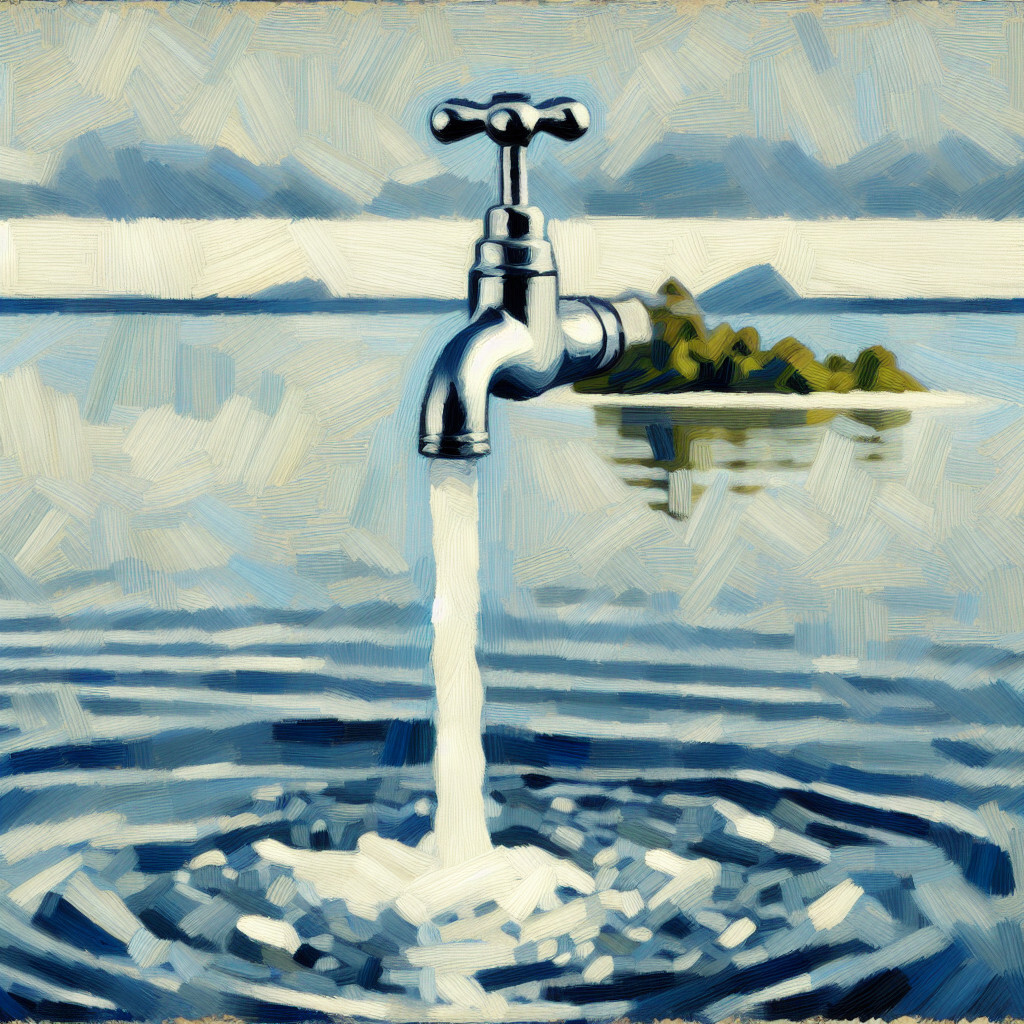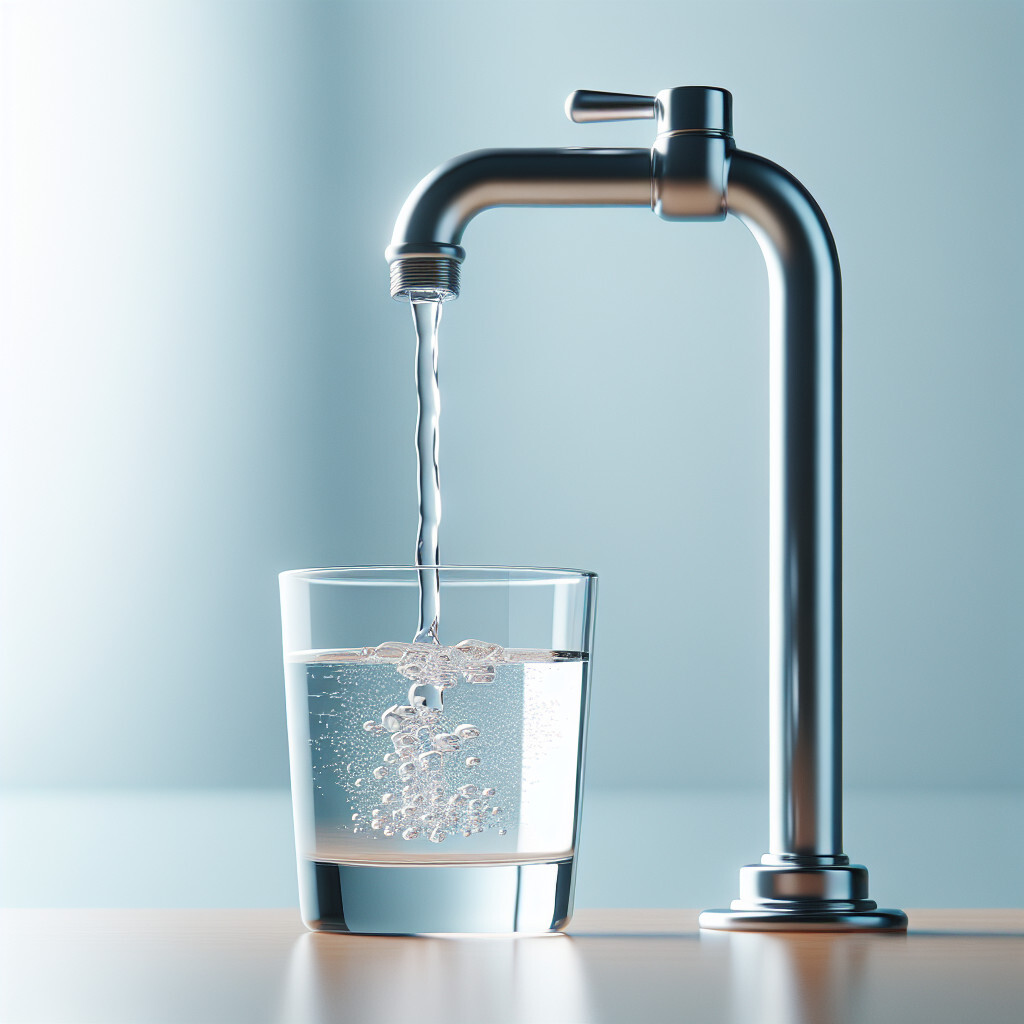-
Table of Contents
“Fiji’s Tap Water: Pure, Clean, and Naturally Filtered.”
Introduction

The tap water in Fiji is generally considered safe to drink in urban areas and major hotels that have filtration systems. However, in rural areas, the quality can vary due to lack of proper sanitation and filtration systems. Fiji also bottles its own water, known worldwide as Fiji Water, which is sourced from an underground aquifer in the remote Yaqara Valley of Viti Levu. Despite this, it’s always recommended for tourists to drink bottled water to avoid any potential health risks.
Understanding the Quality of Tap Water in Fiji
Fiji, a beautiful archipelago in the South Pacific, is renowned for its pristine beaches, lush landscapes, and crystal-clear waters. However, the quality of tap water in Fiji is a topic that often raises questions among tourists and locals alike. This article aims to provide an understanding of the quality of tap water in Fiji, shedding light on its sources, treatment processes, and safety standards.
The primary source of tap water in Fiji is surface water, which includes rivers, streams, and reservoirs. This water is collected and treated before it is distributed to households and businesses. The Water Authority of Fiji (WAF) is responsible for the provision of clean and safe drinking water. The WAF operates several water treatment plants across the country, where the water undergoes a rigorous process of filtration and disinfection to remove any harmful bacteria, viruses, and other contaminants.
The treatment process begins with coagulation and flocculation, where chemicals are added to the water to bind together the small particles into larger clumps, making them easier to remove. The water then goes through sedimentation, where these clumps settle at the bottom and are removed. Following this, the water is filtered to remove any remaining particles. Finally, the water is disinfected, usually with chlorine, to kill any remaining bacteria or viruses.
Despite these treatment processes, the quality of tap water in Fiji can vary significantly depending on the location. In urban areas, where the infrastructure is more developed, the tap water is generally safe to drink. The WAF conducts regular testing to ensure that the water meets the World Health Organization’s guidelines for drinking water quality. However, in rural areas and on some of the smaller islands, the quality of tap water can be less reliable due to less developed infrastructure and treatment facilities.
In these areas, the tap water may not always meet international safety standards, and there can be issues with waterborne diseases. Therefore, it is often recommended that visitors and locals in these areas boil their water before drinking or use bottled water. The WAF is working to improve the water infrastructure in these areas, but progress can be slow due to the challenges of working in remote locations.
Furthermore, Fiji is prone to natural disasters such as cyclones and floods, which can disrupt the water supply and affect the quality of tap water. After such events, the WAF often issues boil water notices as a precautionary measure until the water supply can be confirmed as safe.
In conclusion, while the tap water in Fiji’s urban areas is generally safe to drink thanks to rigorous treatment processes, the quality can be less reliable in rural areas and on smaller islands. Visitors and locals in these areas are advised to take precautions such as boiling water before drinking or using bottled water. The Water Authority of Fiji continues to work towards improving the water infrastructure across the country, striving to ensure that all Fijians have access to clean and safe drinking water.
The Impact of Climate Change on Fiji’s Tap Water Supply
Fiji, an archipelago in the South Pacific, is renowned for its pristine beaches, lush landscapes, and crystal-clear waters. However, the quality of tap water in Fiji is a topic of concern, particularly in the context of climate change. The impact of climate change on Fiji’s tap water supply is a multifaceted issue that warrants a closer look.
Fiji’s water supply primarily depends on rainfall, which fills the island’s rivers, streams, and underground aquifers. However, climate change has led to erratic weather patterns, causing periods of heavy rainfall followed by prolonged droughts. This inconsistency in rainfall has a direct impact on the availability and quality of tap water. During periods of heavy rainfall, the water supply can become contaminated with pollutants and pathogens, making it unsafe for consumption. Conversely, during droughts, the water levels in rivers and aquifers drop significantly, leading to water shortages.
The rising sea levels, another consequence of climate change, pose a significant threat to Fiji’s freshwater resources. As sea levels rise, saltwater infiltrates the freshwater aquifers, a process known as saltwater intrusion. This not only reduces the amount of available freshwater but also degrades its quality. Consuming salt-contaminated water can lead to health issues such as high blood pressure and kidney problems. Moreover, it can also affect the agricultural sector, as most crops cannot tolerate high levels of salt.
Climate change also exacerbates the frequency and intensity of natural disasters such as cyclones and floods. These disasters can damage water infrastructure, leading to disruptions in the water supply. For instance, in 2016, Cyclone Winston, the strongest cyclone ever recorded in the Southern Hemisphere, hit Fiji, causing widespread damage to the country’s water infrastructure. This resulted in a severe water crisis, with many people left without access to safe drinking water for weeks.
The government of Fiji is aware of these challenges and has taken steps to mitigate the impact of climate change on the country’s water supply. These include investing in infrastructure to improve water storage and distribution, implementing water conservation measures, and promoting the use of rainwater harvesting systems. Additionally, the government is also working on developing strategies to protect the country’s freshwater resources from saltwater intrusion.
However, addressing the impact of climate change on Fiji’s tap water supply is not a task that the government can accomplish alone. It requires the collective effort of the international community. Climate change is a global issue, and its effects are felt most acutely by small island nations like Fiji. Therefore, it is crucial for the international community to support Fiji and other vulnerable countries in their fight against climate change.
In conclusion, climate change poses a significant threat to Fiji’s tap water supply, affecting both its availability and quality. The erratic weather patterns, rising sea levels, and increased frequency of natural disasters caused by climate change all contribute to this problem. While the government of Fiji is taking steps to mitigate these impacts, the support of the international community is crucial. Only through collective action can we ensure the availability of safe and clean tap water for future generations in Fiji.
Exploring the Safety Measures for Fiji’s Tap Water
Fiji, an archipelago in the South Pacific, is renowned for its pristine beaches, lush landscapes, and crystal-clear waters. However, when it comes to the quality of tap water, there are several factors to consider. This article aims to explore the safety measures for Fiji’s tap water, providing an informative and comprehensive overview of the subject.
Fiji’s tap water is primarily sourced from surface water, including rivers, streams, and reservoirs, which are susceptible to contamination from various sources. To ensure the safety of the water, the Water Authority of Fiji (WAF) implements rigorous treatment processes. These include coagulation, sedimentation, filtration, and disinfection, which are designed to remove harmful bacteria, viruses, and other microorganisms, as well as any sediments or impurities.
The WAF also conducts regular water quality testing to monitor the effectiveness of these treatment processes. These tests are carried out in accordance with the World Health Organization’s guidelines for drinking water quality, ensuring that the water meets international standards. The results of these tests are made publicly available, providing transparency and reassurance to consumers.
Despite these measures, it’s important to note that the quality of tap water can vary across different parts of Fiji. In urban areas, where the water infrastructure is more developed, the tap water is generally safe to drink. However, in rural areas and on some of the smaller islands, the water supply can be less reliable, and contamination can occur due to inadequate sanitation facilities or natural disasters such as cyclones.
In these areas, the WAF has implemented additional safety measures, such as the use of rainwater harvesting systems and the provision of water purification tablets. These measures are designed to provide a safe and reliable source of drinking water, even in the most remote parts of the country.
Furthermore, the Fijian government has made significant investments in improving the country’s water infrastructure. This includes upgrading treatment plants, replacing old pipes, and expanding the water distribution network. These efforts are aimed at ensuring that all Fijians have access to safe and clean drinking water, regardless of where they live.
However, despite these efforts, there are still challenges to be addressed. For instance, the effects of climate change, such as rising sea levels and increased frequency of extreme weather events, pose a threat to the country’s water supply. These issues require ongoing attention and investment to ensure the long-term sustainability of Fiji’s water resources.
In conclusion, while Fiji’s tap water is subject to rigorous safety measures and generally meets international standards, the quality can vary depending on the location. Therefore, for those visiting the country, particularly in rural areas or smaller islands, it may be advisable to drink bottled water or use water purification methods as a precaution. The Fijian government and the WAF are committed to improving the country’s water infrastructure and addressing the challenges posed by climate change, with the ultimate goal of ensuring safe and clean drinking water for all.
The Role of Infrastructure in Providing Clean Tap Water in Fiji
Fiji, an archipelago in the South Pacific, is renowned for its pristine beaches, lush landscapes, and crystal-clear waters. However, the quality of tap water in Fiji is a topic that often raises questions among locals and tourists alike. The role of infrastructure in providing clean tap water in Fiji is pivotal and warrants a closer look.
The Fijian government, in collaboration with international organizations, has made significant strides in improving the country’s water infrastructure. The primary goal is to ensure that every Fijian has access to safe and clean drinking water. The Water Authority of Fiji (WAF) is the principal body responsible for the provision and management of water and wastewater services across the country. The WAF has been instrumental in implementing various projects aimed at enhancing the water supply infrastructure, including the construction of new water treatment plants, upgrading existing facilities, and extending the water supply network to reach more remote areas.
However, despite these efforts, challenges persist. Fiji’s geographical layout, with its numerous islands and rugged terrains, poses significant logistical hurdles in establishing a comprehensive water supply network. Moreover, the country’s susceptibility to natural disasters such as cyclones and floods often results in damage to the water infrastructure, leading to disruptions in the water supply.
Another critical aspect is the quality of the water sources. Fiji is blessed with abundant freshwater resources, primarily in the form of rivers and underground aquifers. However, these sources are vulnerable to pollution from various factors such as agricultural runoff, industrial waste, and improper waste disposal. This necessitates rigorous water treatment processes to ensure the water is safe for consumption.
The water treatment process in Fiji involves several stages, including coagulation, sedimentation, filtration, and disinfection. The process begins with the addition of a coagulant to the raw water, which causes the suspended particles to clump together. These clumps then settle down during the sedimentation stage, after which the water is filtered to remove any remaining particles. Finally, the water is disinfected, usually with chlorine, to kill any harmful bacteria or viruses.
Despite the rigorous treatment process, there have been instances where the tap water in certain parts of Fiji has been found to be contaminated with harmful bacteria. This is often due to issues in the water distribution system, such as leakages in the pipelines, which can allow contaminants to enter the water supply. The WAF regularly monitors the water quality and carries out necessary repairs and maintenance to address these issues.
In conclusion, the role of infrastructure in providing clean tap water in Fiji is multifaceted and complex. It involves not only the physical infrastructure such as water treatment plants and pipelines but also the systems and processes for managing the water resources and ensuring their quality. While significant progress has been made, there is still room for improvement. Continued investment in the water infrastructure, coupled with effective management and regulation, is crucial for ensuring that every Fijian has access to safe and clean drinking water.
Q&A
1. Question: Is tap water in Fiji safe to drink?
Answer: Generally, it’s not recommended to drink tap water in Fiji as it may contain bacteria and other contaminants. It’s advisable to drink bottled or boiled water.
2. Question: What is the quality of tap water in Fiji?
Answer: The quality of tap water in Fiji can vary. In urban areas, the water is treated but may still contain contaminants. In rural areas, the water quality can be poor due to lack of proper sanitation facilities.
3. Question: Are there any efforts to improve tap water quality in Fiji?
Answer: Yes, the Fijian government and international organizations are working to improve water infrastructure and sanitation facilities to enhance the quality of tap water.
4. Question: What causes contamination in Fiji’s tap water?
Answer: Contamination in Fiji’s tap water can be caused by a variety of factors including inadequate sanitation, agricultural runoff, industrial waste, and natural disasters like cyclones that damage water infrastructure.
Conclusion
The tap water in Fiji is generally not safe to drink. While it may be treated, inconsistencies in local water treatment processes can lead to contamination. Therefore, it’s recommended for visitors to drink bottled or filtered water.






